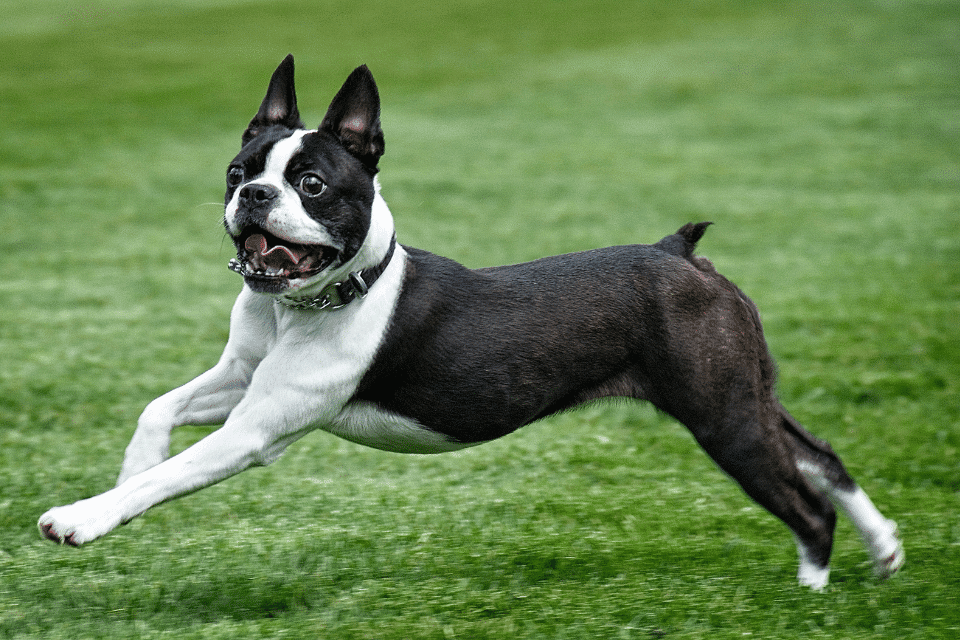
Breeding Boston Terriers is more than a passionate endeavor; it’s a craft interwoven with science, ethics, and a deep appreciation for this uniquely American breed. As breeders, understanding the nuances of Boston Terriers, from their historical lineage as fighting dogs to their evolution into the affectionate companions we know today, is paramount. This journey, however, is fraught with medical, ethical, and emotional complexities.
Historical Context: The Evolution of the Boston Terrier
Boston Terriers have long been revered, initially bred for fighting and later transitioning to beloved family pets. The transition has been strategic, ensuring their physical and temperamental evolution, emphasizing health and adherence to breed standards. Breeders have a fundamental role in maintaining this legacy, making informed decisions that affect not just individual dogs, but the future of the breed.
The story of Boston Terriers is deeply rooted in American culture. This breed emerged in the late 19th century in Boston, where they gained rapid popularity. They’ve evolved from their more aggressive ancestors to the gentle, playful, and companionable dogs adored by many today. The breed’s transition underlines the importance of responsible breeding practices, not just for the sake of the dogs, but for maintaining the integrity and future resilience of the Boston breed.
Genetic Health Challenges: Preparing for a Healthy Future
The breeding process isn’t without its challenges, particularly regarding the health of Boston Terriers. These dogs are prone to specific genetic disorders, notably brachycephalic respiratory syndrome, patellar luxation, and congenital deafness. Each of these health concerns requires breeders to take a preventative stance, adopting conscientious reproduction strategies to ensure the lineage remains robust.
Informed breeders utilize genetic testing and health screenings, understanding these aren’t business expenses but necessary measures for quality breeding. These tests help predict and prevent potentially debilitating conditions, contributing to the longevity and quality of life of future generations of Boston Terriers. This proactive approach defines responsible breeding, setting a benchmark for best practices in the industry.
Methodological Framework: Rigorous Selection and Care
The cornerstone of ethical breeding practices lies in the selection and evaluation of breeding candidates. This critical phase involves more than choosing dogs based on appearance or temperament. It’s about a comprehensive veterinary examination, factoring in potential hereditary conditions, genetic health, and overall physical and mental wellness. The goal is to pair Boston Terriers that will produce healthy, happy puppies, minimizing the risk of genetic disorders.
During gestation, the oversight continues. The dam requires optimal nutrition, regular health monitoring, and a secure, peaceful whelping area. These needs aren’t luxuries; they’re essentials, ensuring the mother’s well-being and proper prenatal development. Breeders must be equipped with the resources, knowledge, and genuine concern for their dogs to navigate this delicate period successfully.

Practical Implications: From Whelping to New Homes
The whelping process is a critical stage, often dictating the neonates’ survival and long-term health. Breeders must prepare for various scenarios, as complications may arise unexpectedly. The immediate postnatal phase is equally crucial, requiring a clean environment, proper monitoring, and initial neonate care to ensure successful outcomes.
Once the puppies arrive, the real work begins. Early life development strategies, including socialization and training, are integral. Puppies need exposure to different environments, people, and other pets to develop well-rounded, adaptable behaviors. These initial experiences are foundational, influencing their future interactions and sociability.
As the puppies grow, finding them the right homes is another essential aspect of breeding. Breeders shouldn’t merely be seeking to sell their puppies; they should be rehoming them. This process involves educating prospective owners about the puppy’s needs, the breed’s characteristics, and the individual medical backgrounds of the puppies. The transition to new homes should be meticulous, ensuring new owners are committed and capable of providing the care Boston Terriers require.
Ethical Responsibilities and Rehoming: A Lifelong Commitment
Breeding extends beyond the sale of puppies. It’s a lifelong commitment to the dogs’ welfare, requiring breeders to maintain a support network for new owners. This commitment means offering guidance, resources, and assistance throughout the Boston Terrier’s various life stages. Whether it’s advice on health concerns, socialization and training, or general care, a breeder’s responsibility doesn’t end once the puppy leaves for its new home.
The emphasis on responsible breeding highlights the breeders’ role as guardians of the Boston Terrier’s heritage. By adhering to ethical and quality breeding standards, they ensure the health, preservation, and societal integration of these dogs. This guardianship is about honoring their legacy, contributing to a future where this iconic breed continues to flourish.
Conclusion
Breeding Boston Terriers is an intricate, multifaceted process demanding a harmonious blend of knowledge, ethics, and love for the breed. From the careful selection of breeding pairs to the lifelong commitment to each dog’s welfare, the role of the breeder is pivotal. They are the stewards of the breed’s future, tasked with the monumental responsibility of ensuring these dogs can lead happy, healthy lives. In honoring these ethical practices, they uphold the Boston Terrier’s legacy, ensuring its continued place in our homes and hearts.
Disclaimer: This article is intended for educational purposes only and should not be used as a substitute for professional veterinary advice.
References
- American Kennel Club. (2021). Boston Terrier Dog Breed Information.
- Boston Terrier Club of America. (2020). Guide to Breeding Boston Terriers.
- Jones, T., & Smith, J. R. (2019). Canine genetics: navigating the complexity of disease prevention in breeding. Veterinary Clinics of North America: Small Animal Practice, 49(6), 987-1005.
- Parker, H. G., & Ostrander, E. A. (2015). Canine genomics and genetics: running with the pack. PLOS genetics, 11(10), e1005371.
- Willis, M. B. (2016). Breeding dogs: a practical guide. Pelagic Publishing.





